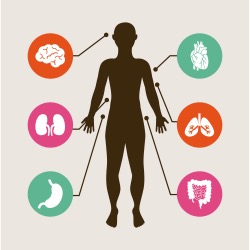find your perfect postgrad program
Search our Database of 30,000 Courses
Studying a Masters Degree In Biology
Find postgraduate programs in BIOLOGYBiology is a subject area that has developed considerably over the last ten years and encompasses many varied fields of research. Our awareness of the living world has accelerated at a fast pace, providing a more thorough understanding of complex issues like the environment, ecology, neuroscience, stem cell therapy and evolutionary processes.
As this expansion continues, many disciplines have become interconnected, meaning a geneticist may use the same methodologies and tools as a botanist or even a biochemist. So by pursuing a Masters in Biology, students can go on to develop a future career in many different fields.
What to expect from a Masters in Biology?
If you’re intending to enrol on a Masters in Biology, it’s essential to have excellent written and investigative skills. The key element of the postgrad program and the thesis will be research – in fact any coursework you do will be designed to back up and reinforce your findings.
As a postgraduate student you are training to become an expert in your field, so some courses could require you to present your own seminar and take part in discussions about other graduates seminars. There may also be a chance to help out your faculty by teaching undergraduate biology students.
Reasons to study a Masters in Biology
For many students who want to work in the field of biology, a first degree is not sufficient for them to get the kind of job they most aspire to. Once they have passed a masters qualification in this topic, a far wider range of opportunities become available, including those which come with added responsibilities and a significantly higher salary. Courses are designed to provide students with an appreciation of how biology can be applied to various areas of industry. Under the tutorage of academic experts, you’ll gain the skills needed to become a leader in your specialism.
Entry requirements for a Biology Masters
The basic entry requirement for a Masters in Biology is a good first degree, most admissions staff will not accept lower than a 2.1, or upper second class honours – for students from abroad, the equivalent qualification will be expected. This should have been earned in Biology or a topic closely linked to it.

For students who do not speak English as a first language, a university will ask for proof of your language skills before accepting you onto a course. You could be asked to take a test set by the faculty or present a Test of English as a Foreign Language (TOEFL) or an International English Language Testing System (IELTS) certificate, to demonstrate that you meet the universities entry requirements.
Postgraduate courses in Biology can be competitive, and many universities like to see a student has experience in the field before applying to a masters course. Whether paid or unpaid, spending your summer or weekends at a local museum, laboratory or research facility demonstrates you have practical knowledge of the industry and real commitment.
Many universities also request a letter of recommendation, either from a past professor, or an employer, as evidence of your suitability for the course.
Biology study modules
The units offered on a Biology masters will equip you with the skills to succeed in a research post or an industrial career. Some will be compulsory, but others can be selected to construct a more personalised program of study. Modules of study could include:
- Data Analysis
- Tissue Engineering
- Bioremediation
- Cell Sampling
- Bioscience Programming
Aside from these taught modules there will be an opportunity for independent study. This research module will take the form of a personal project and it might be offered alongside a work placement. This aspect of the course will call for students to organise, plan and deliver a substantial dissertation, backed by independent research. Students will be expected to analyse their own findings and present their results concisely.
Student case study
Choosing the right university course for you can be a challenge, but you could begin by researching what’s available and then deciding which masters program offers exactly what you want. Alice is studying Biological Sciences at Bristol, she explains: “The reputation of the Biological Sciences department and the research which had already taken place at the university made choosing Bristol an easy decision. The regular talks and seminars allow me to keep an overview of other research going on in the department and any recent developments which have been made.”
Career opportunities
Upon graduation of a Biology Masters, there are many career options open to you. The research and the specialist knowledge you have gained can be applied to many different fields, including:
- Zoology
- Microbiology
- Biochemistry
- Biophysics
- Biomedical Science
- Wildlife Biology
However, if you’d prefer to continue with your studies there are a number of doctoral qualifications to take, these could include carrying out original research into a wide variety of areas, including Medicine, Microbiology or Nature Conservation.
Find a postgraduate course in Biology
Our course search facility which allows you to do a general search for Biology courses . You can also search for specialised subject areas within the overall field of biology. Subjects include human biology, genetics, animal science, botany, entomology, microbiology, cell biology, industrial biology and more.
Find postgraduate programs in BIOLOGYRelated articles
Top 10 Biological Sciences Masters Degree Courses In The UK & Europe

